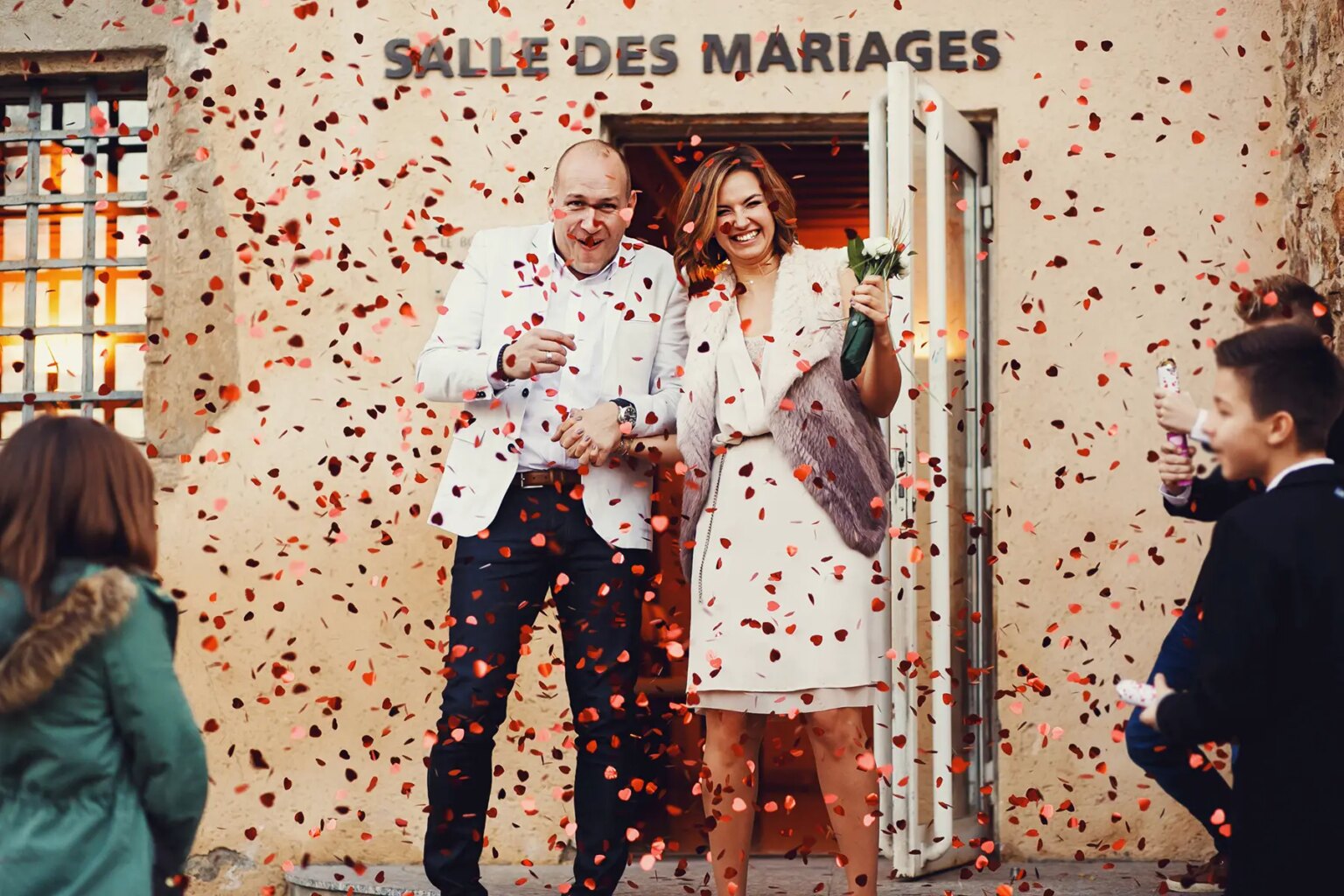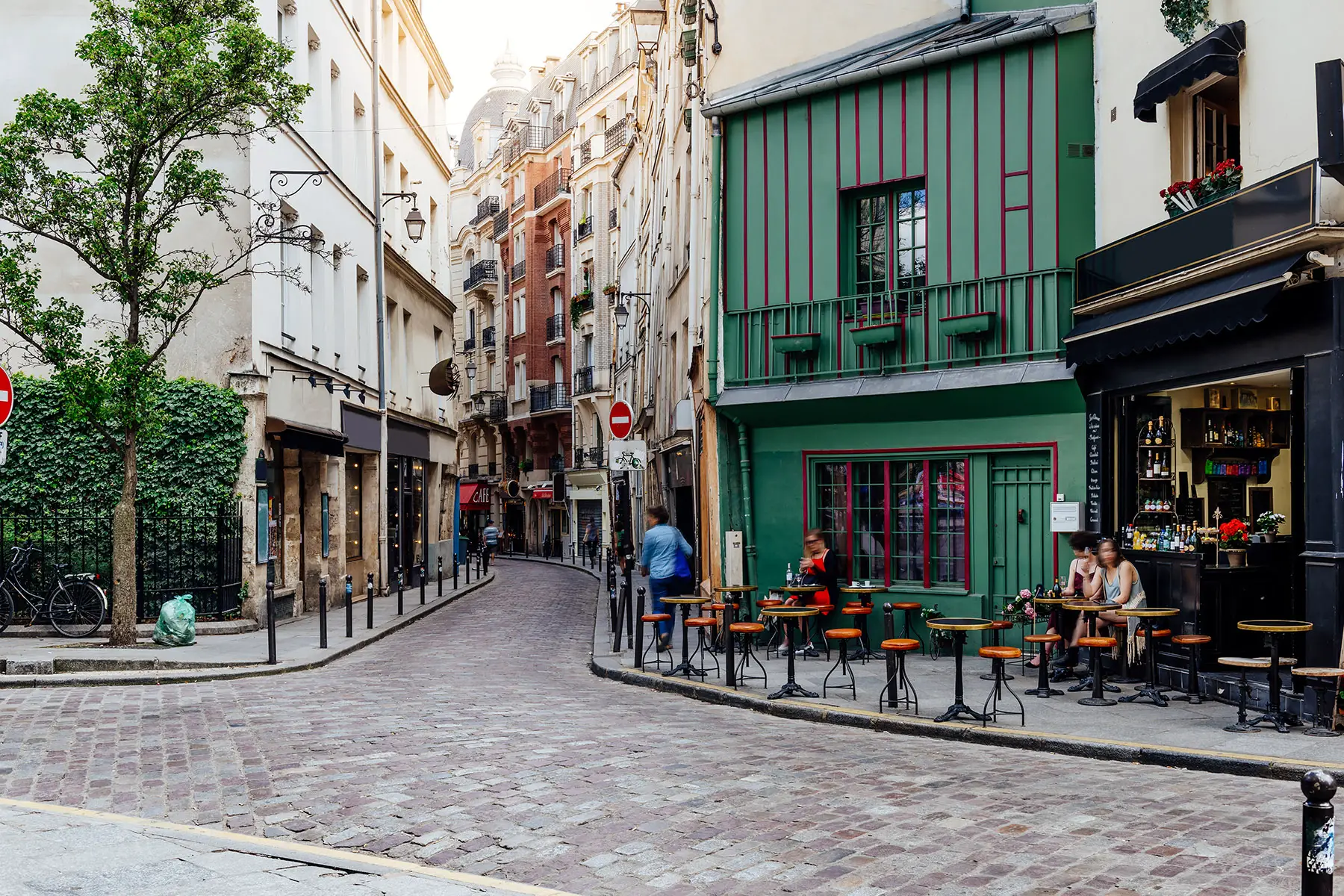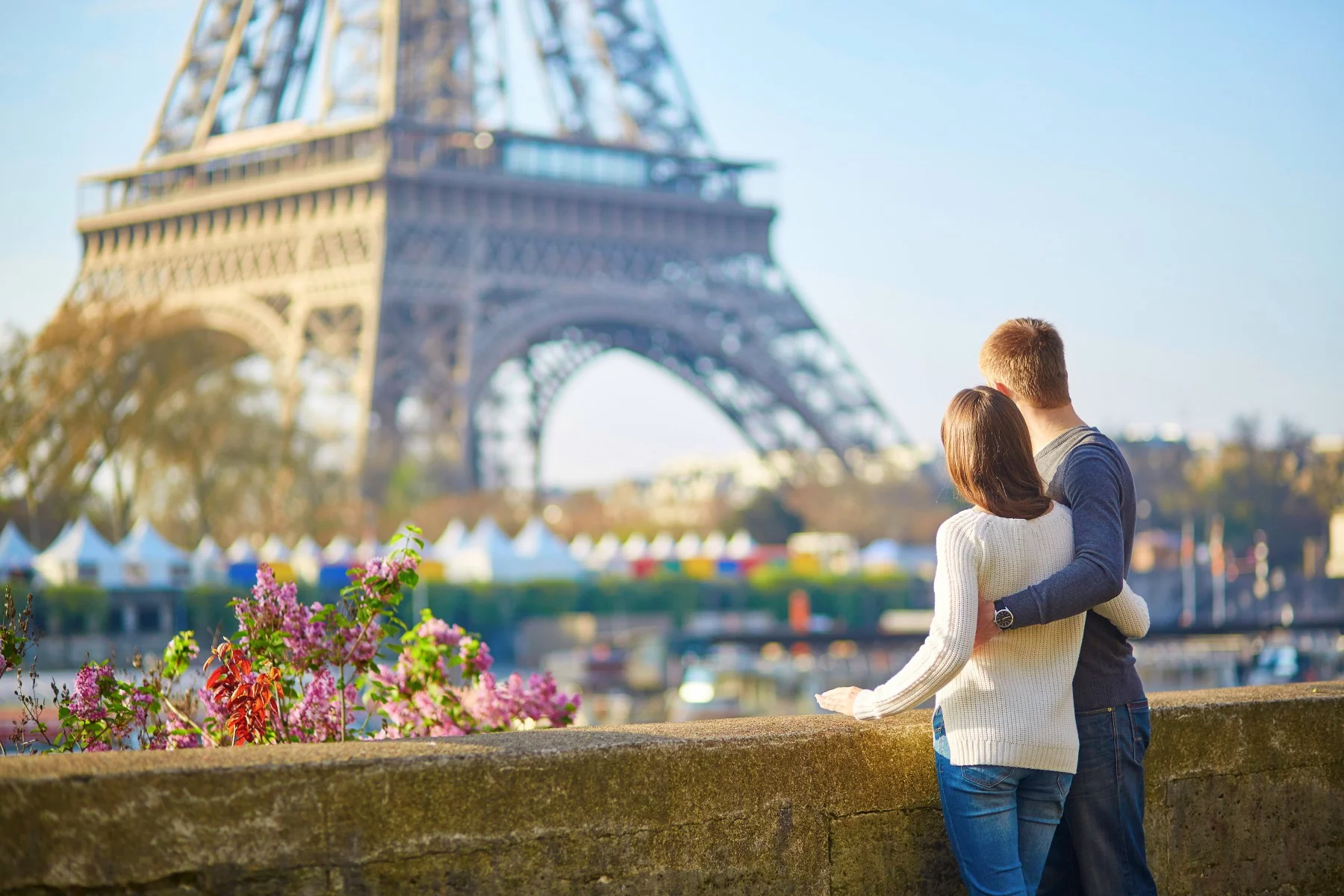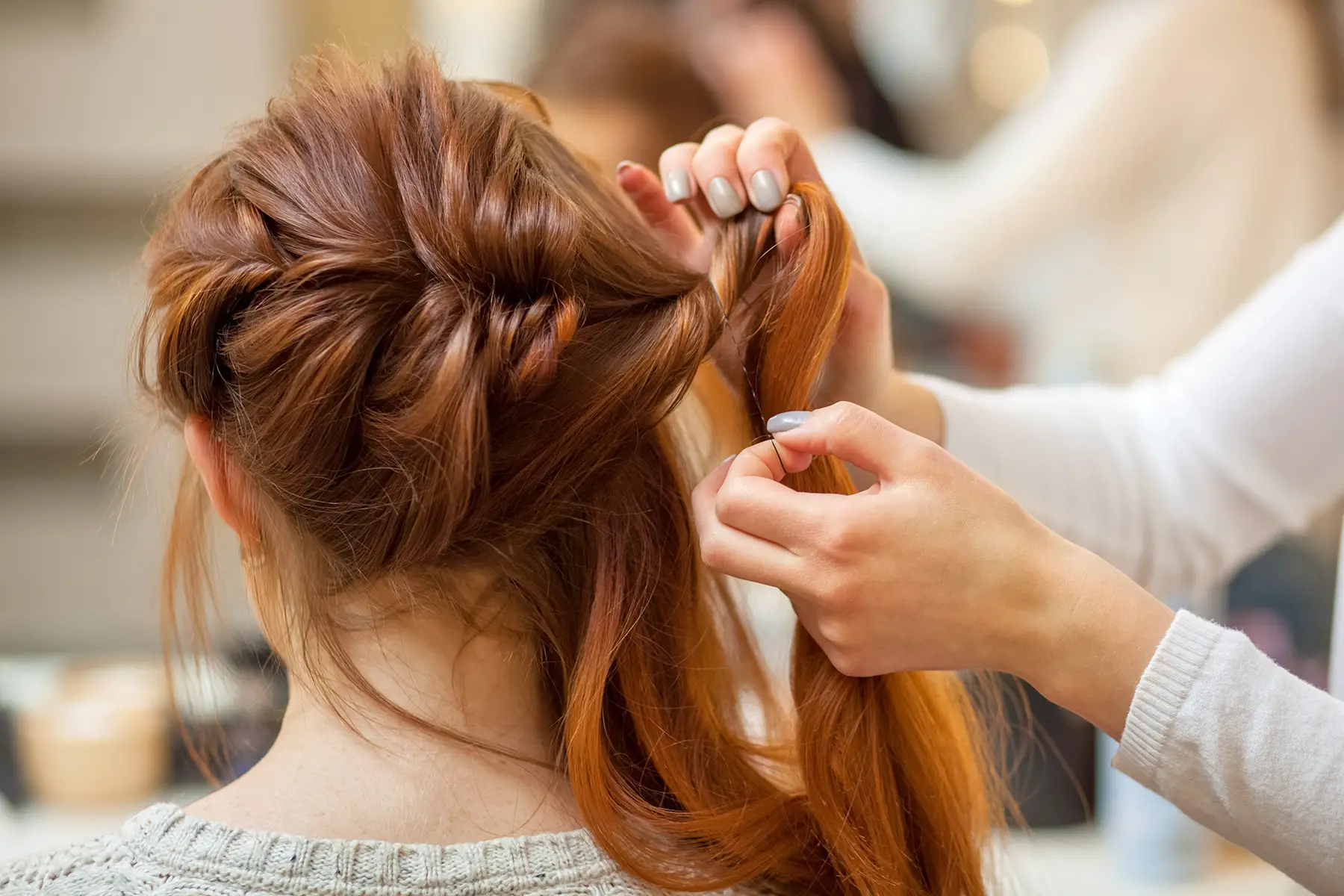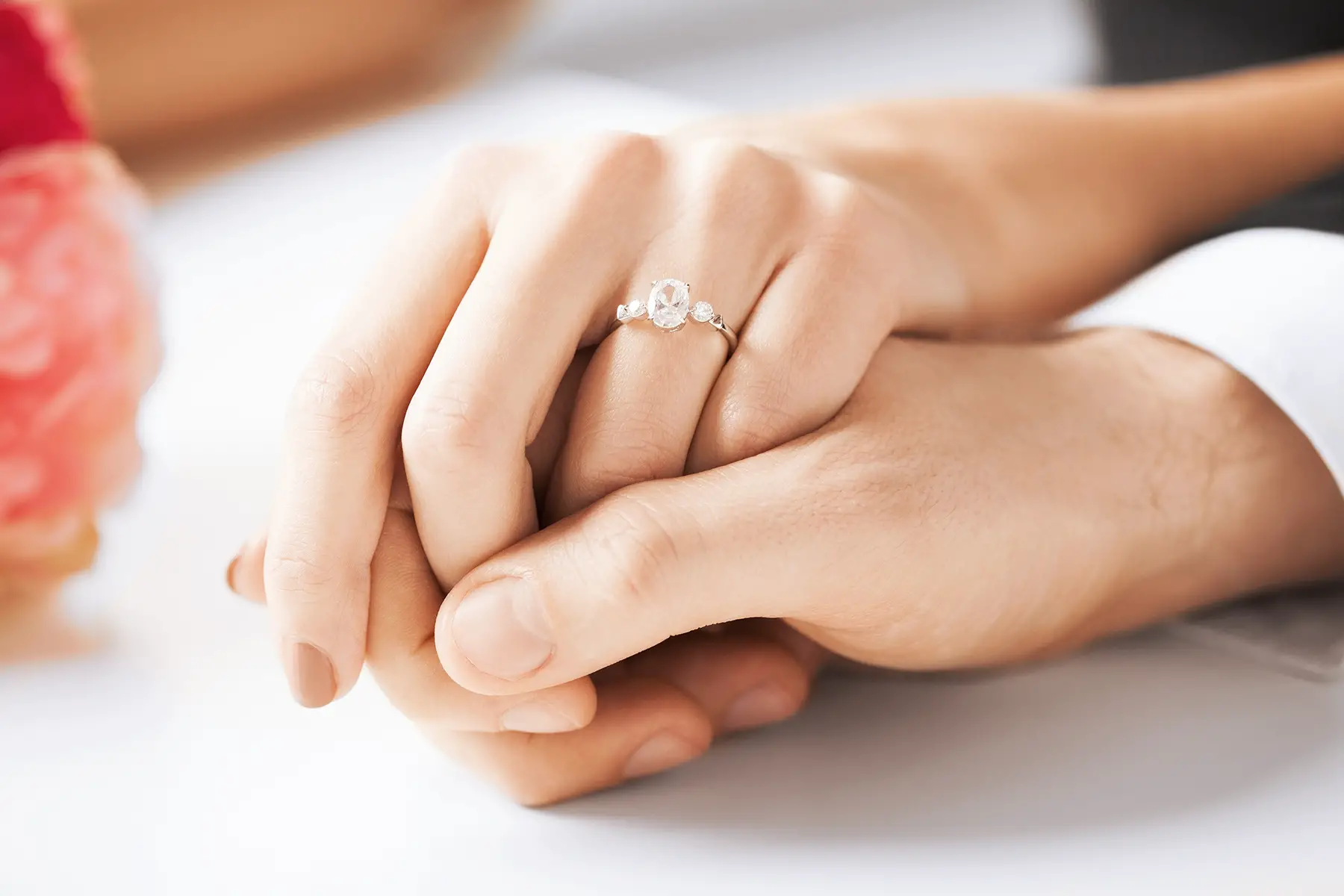We often hear that Paris is the city of love. But France is home to numerous gorgeous backdrops, scenery, and châteaux, so almost anywhere in the country could be your ideal wedding location. However, the only place you can legally get married in France is at your local town hall by a civil servant. Beyond that, many couples choose religious or humanist ceremonies and festivities to celebrate with loved ones. Although French weddings follow many similar traditions to other western countries, France also has some unique customs.
Below, we’ll take a look at some of these traditions and go over the essentials concerning weddings and civil partnerships in France:
- An overview of marriage in France
- What types of weddings are possible in France?
- Gay marriage and same-sex partnerships in France
- French civil partnerships
- The legal requirements to get married in France
- Planning your French wedding: step by step
- The cost of getting married in France
- Top French wedding locations
- Wedding traditions and customs in France
- Useful resources
Cigna Global
Want access to the best private medical services in France? Speak to the healthcare professionals at Cigna Global today and find a policy that’s right for you. Take advantage of their global network of doctors, specialists, therapists and more with coverage tailor-made for you and your family. If you’re starting a new life in France, get peace of mind with Cigna Global.
An overview of marriage in France
Couples living together in France have several options: marriage, civil partnership (Pacs), or simply cohabitation (concubinage or union libre). Cohabitation entails no rights or obligations, and each person files their taxes separately. As for laws regarding civil partnerships, these have been gradually aligning to reflect the rights and obligations of marriage contracts. However, there are a few major differences.
The marriage rate in France (PDF) is relatively low: 3.5 marriages per 1,000 people, compared to the OECD and EU averages of 4.6 and 4.8, respectively. The people who do marry are doing so later. In 2019, the average age at marriage was 38.6 years for men, and 36.1 years for women. However, 18% of people marrying have already been divorced. Outside of strictly Catholic French communities, there is generally no stigma attached to this.
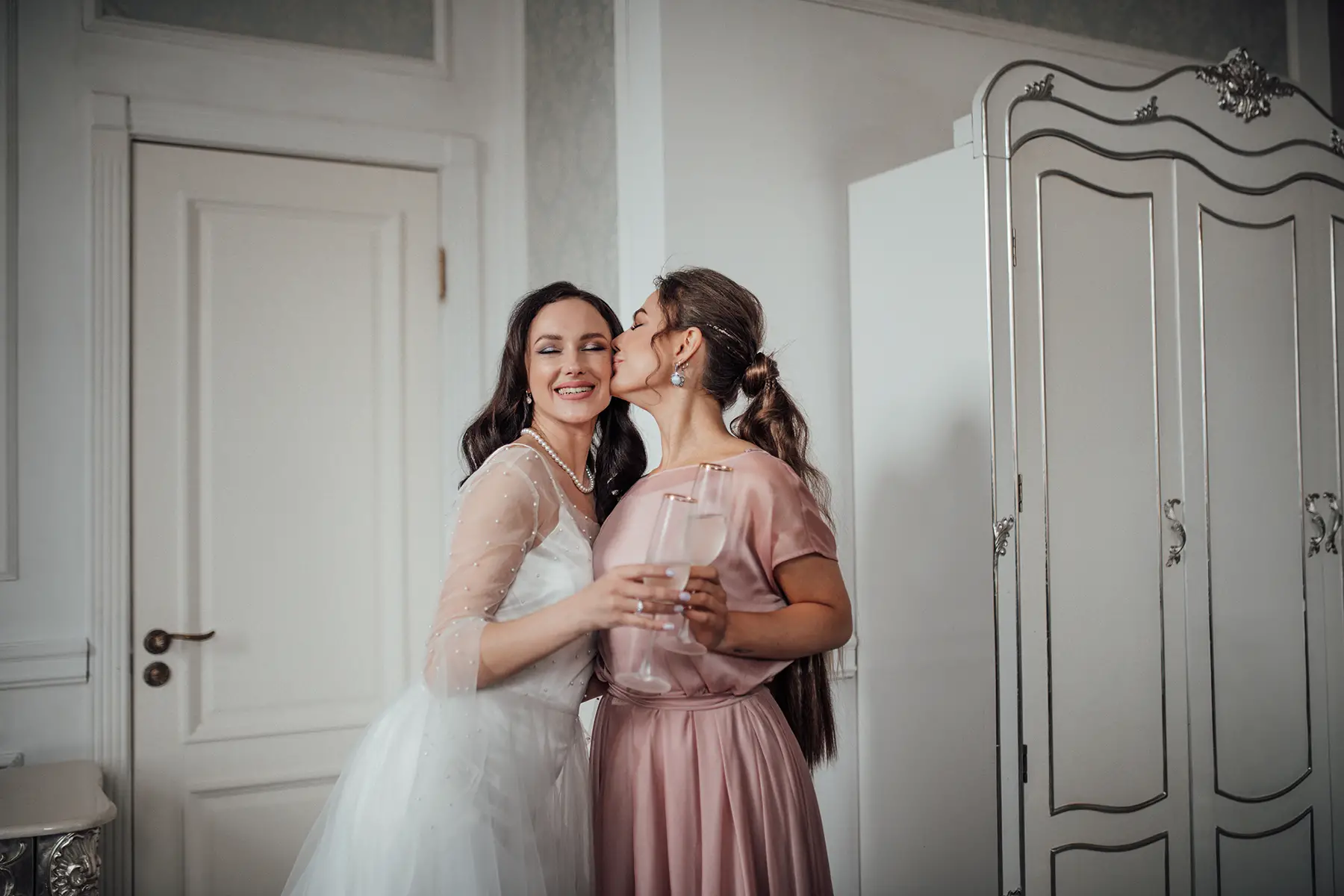
In 2019, there were 227,000 French weddings, of which 6,000 were between persons of the same sex. In comparison, in 2018, around 209,000 civil partnerships, or Pacs, took place. Again, a minority of these (8,600) were same-sex partnerships. Among young adults in the 20–34 age group, it is more common for couples to cohabit than to be married or in a civil partnership. This reflects a trend more common in northern Europe than in southern or eastern EU countries.
French attitudes towards marriage
It seems that marriage in France is growing less popular. This may reflect global trends, as across OECD countries, marriage rates have fallen by almost half since 1970. Fewer people are getting married, and when they do, they marry later. Today in France, over 60% of children are born outside marriage (PDF). This represents one of the top five rates across OECD countries. There is no stigma attached to this state of affairs in most communities.
In contrast, civil partnerships, known as pactes civils de solidarité (Pacs), have been increasingly popular since their creation in 1999. The French state later legalized same-sex marriage in 2013. Today, more same-sex couples are choosing the Pacs over marriage. The French population broadly welcomed same-sex marriage, although fringe groups, mostly from Catholic associations, organized large demonstrations in major cities at the time.
What types of weddings are possible in France?
A civil ceremony at the town hall is the only legal way to wed in France. A civil servant, usually the mayor or a deputy, officiates the proceedings. This can be your main ceremony, to which you invite all your friends and family, followed by festivities. Alternatively, many couples choose to make a minimalist affair of their legal civil wedding. In this case, they may hold a different type of ceremony later.
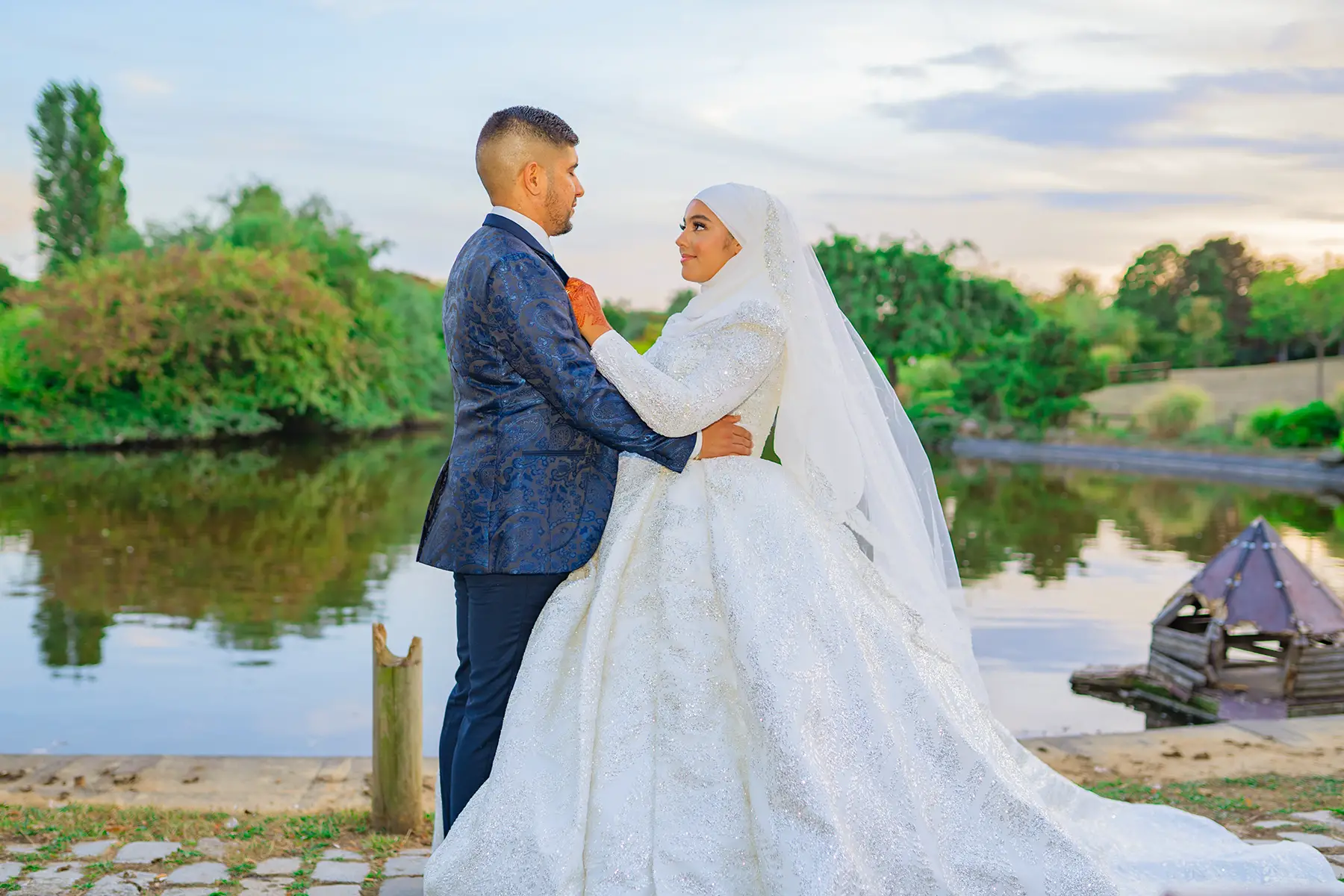
When it comes to wedding celebrations, you have plenty of options. Many people still organize religious services, and some opt for symbolic ceremonies officiated by friends and family. The humanist wedding, known as mariage laïque, is also becoming increasingly popular in France.
Gay marriage and same-sex partnerships in France
France legalized same-sex marriage in 2013. In 2014, around 10,000 same-sex couples married in France. This number has now stabilized at about 6,000 per year. The process and legal requirements are the same as for heterosexual couples. However, the main religion in France is Catholicism, which does not hold religious weddings for same-sex couples in its churches.
French civil partnerships
Civil partnerships, or pactes civils de solidarité (Pacs), came into existence in France in 1999. Although envisaged with same-sex couples in mind, anyone can join one. In 2019, for example, 188,000 heterosexual couples and 8,000 same-sex couples entered a civil partnership. Pacs are often private affairs – you don’t need witnesses, and the couple tends to organize minimal celebrations, if any. There are several main differences compared to marriage:
- In the case of death and without a will, the partner does not inherit or benefit from a widower’s pension.
- Similarly, you don’t get alimony if the civil partnership dissolves or you break up.
- If you have a child, paternity is not assumed. The father must explicitly recognize the child as his.
- You cannot jointly adopt a child since only one of you becomes the legal parent.
- If you want to adopt your partner’s child from a previous relationship, the child’s other parent automatically loses their parental rights. Courts therefore mostly refuse such adoption requests.
- You cannot use your partner’s last name.
- Obtaining French nationality or a residence permit, if you or your partner is foreign, is not as easy.
The couple must go to the local town hall or a notary together to register their Pacs. They fill out and sign an agreement. There are two forms of Pacs settlements: separation of estate and indivision, and the difference relates to how you must divide assets if you break up.
The legal requirements to get married in France
Requirements and rights
The following rights and obligations apply to weddings in France:
- You must be 18 or over, although minors can marry with parental authorization.
- You cannot marry a member of your immediate family, whether the tie is biological, adoptive, or created by alliance.
- Each party must give their clear and free consent to the union.
- If you are foreign or live abroad, you can marry in France once you reside there for one month or if one of your parents lives in France.
Necessary paperwork and documentation
Both people need to provide:
- A recent birth certificate, no more than three months old if it is French, or six months old if foreign.
- Valid ID, both a copy and the original document to show at the mairie.
- Proof of residence – this can be a document like an electricity bill, phone bill, or bank statement.
You can have a minimum of two and a maximum of four chosen witnesses, and they will need to provide:
- A copy of their ID (on the day of the marriage, they should bring the original)
- A form containing personal information (profession, date and place of birth, and address)
A translator may need to certify foreign documents if you do not have access to a multilingual version.
Planning your French wedding: step by step
How much planning your French wedding requires depends on how elaborate you want your day to be. Although wedding planners exist in France, they are not as commonly used as in countries such as the US.
Choose the location
Every French wedding requires a legal marriage ceremony at the local mairie where one member of the couple, or one of their parents, resides. Your first step will be to choose where suits you best.
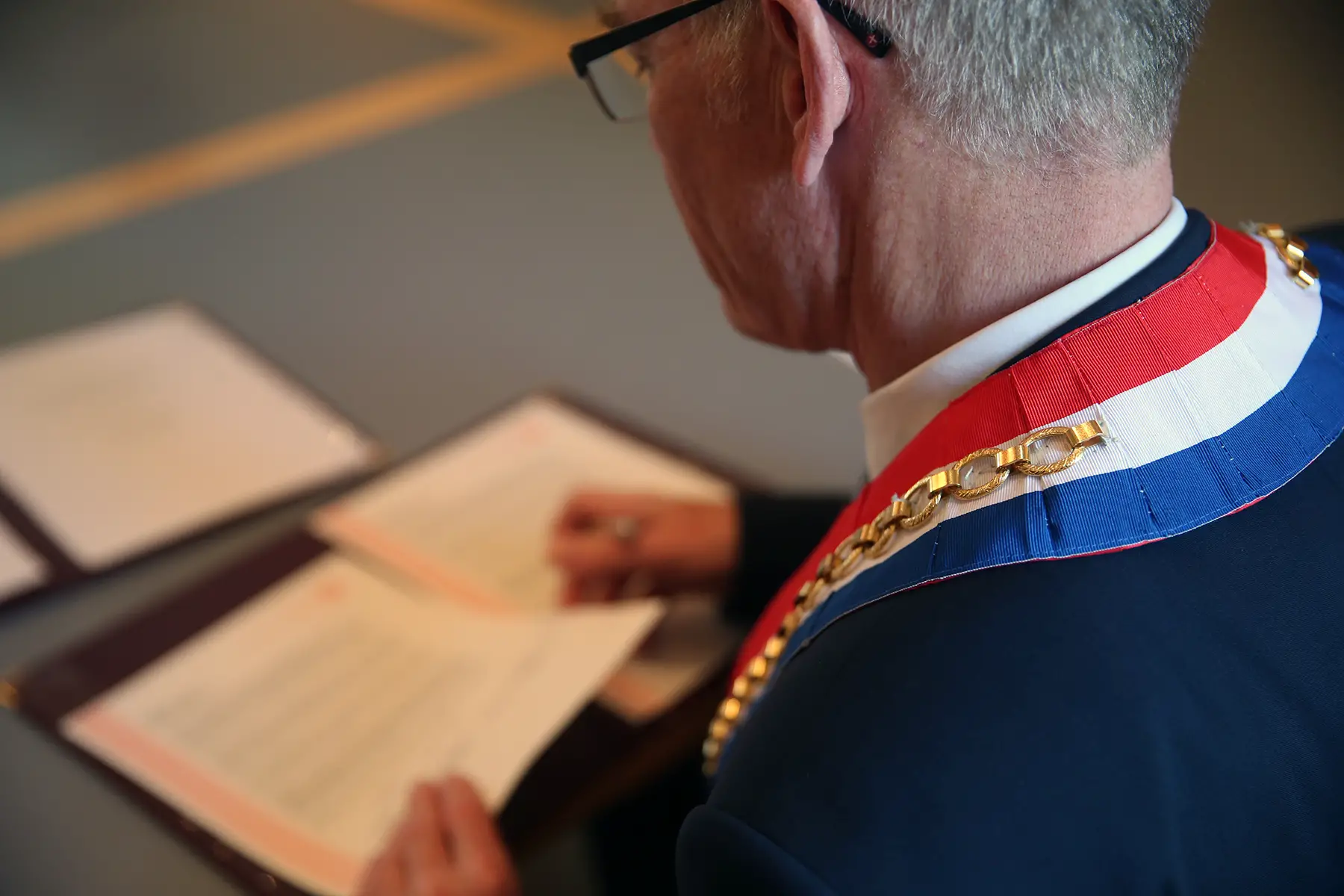
If you want to hold a religious ceremony, this takes place after the legal one. You may want this ceremony and festivities to happen on the same day as your civil wedding. In that case, you’ll need to find a location near your town hall. It’s good to start looking at least six months in advance, even a year or two if you’re planning a large wedding with many guests.
Gather the paperwork and select a date
Once you have the necessary paperwork, you hand the dossier into your mairie. At this stage, you will have a meeting with a civil servant and select a date for the wedding. Some couples choose dates based on when they have planned their wedding celebration – but bear in mind that weekends can book up fast. It’s a good idea to have your paperwork ready early, so you can choose a date and time that suit you. The town hall has to publish the marriage banns for a minimum of 10 days before the wedding.
Contact caterers, entertainers, and guests
Your location may already provide some catering, entertainment, or decoration options. You can discuss this with them and check how many guests the space accommodates. This will help you decide your budget and the next steps to take. French wedding planning usually involves:
- Selecting and booking caterers, florists, entertainment, photographers, and videographers: six months to a year before
- Write out a guest list and send save-the-dates: six months to one year before
- Shop for a wedding outfit: 3–6 months before
- Send the official invitations, book make-up and hair, organize transport: 2–3 months before
- Create a floor plan or seating chart, and finalize decorations: 2–4 weeks before
On the day
The official wedding ceremony usually follows the same schedule. First, you must arrive at the town hall about 15 minutes before your allocated slot. Someone will then bring you to the wedding hall, where the local mayor or deputy performs the ceremony – the door must remain open, as the ceremony is public. You will stand as they read out the legal texts, and if you wish, the ceremony may include additional personal information about the couple. Should one or both of you not speak French, an interpreter may be present.
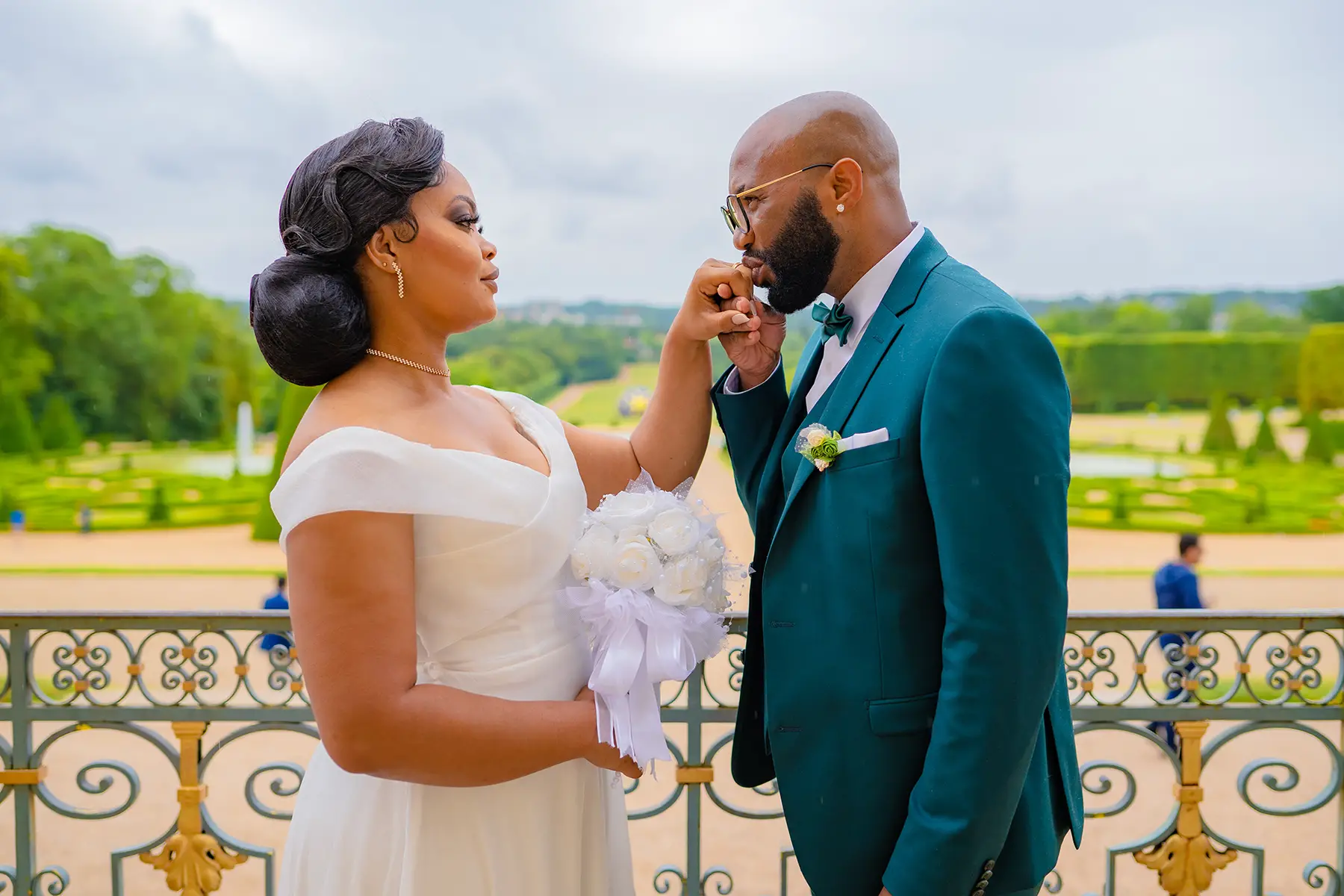
You will be asked in turn if you give your consent to the wedding and exchange rings if you wish. Then it is time to sign the marriage record (acte d’état civil). The officiant then proclaims you a married couple, and you will receive an official booklet (livret de famille) and possibly a symbolic gift from the town hall. You can then exit the town hall and proceed to your religious ceremony or festivities, perhaps accompanied by applause and confetti.
The cost of getting married in France
The administrative aspects of a civil wedding in France will cost you nothing. Beyond that, your vision for your wedding will largely dictate the cost. For example, booking a fancy restaurant for 150 people in Paris will require far deeper pockets than renting out a small barn in Brittany for 50 guests. In recent years, a French wedding with 100 guests has cost an average of €12,000, roughly split the following way:
- Space rental for the meal and party: €1,000–5,000
- Catering: €4,000–7,000
- Bridal gown and accessories: €800–3,000
- Groom’s outfit: €500–600
- Decorations: €300–1,500
- Flowers: €50–300
- Music and entertainment: €1,000–1,400
- Photographer: €1,000–3,000
- Rings: €100–1,500
- Invitations and thank-you cards: €300–600
- Souvenirs for guests: €500–600
Top French wedding locations
Civil weddings in France must take place in the local town hall (mairie). Unlike in other countries, civil servants do not come to a location of your choice to perform the ceremony. As such, many couples opt for an informal and minimal civil wedding, followed by a religious service in a church or a more lavish celebration with friends and family in a location of their choice. Weddings often take place in countryside retreats, as it’s not always easy to book venues large enough for 100 or more people. These locations include châteaux, mansions, converted farms, local village halls, or even outdoor venues.
As France has a wealth of beautiful locations and scenery, destination weddings are not very common. Couples may, however, choose to get married in another country to reflect their origins or ancestry. In 2019, one in seven French marriages were mixed (between a French national and someone from another country). In addition, those who prefer a more intimate ceremony may choose to wed abroad so that only close relatives and friends attend. The preferred destination wedding locations for French couples include Italy, Greece, Scotland, Morocco, and the US.
Wedding traditions and customs in France
Today, weddings in France tend to incorporate traditions familiar to most Europeans and Americans. For example, wedding outfits – brides usually wear white and should have something old, new, borrowed, and blue. Grooms wear a tux or tailored suit. On the other hand, bridesmaids and best men don’t usually have matching outfits.
There are many other similarities to other European countries during the festivities. For instance, guests shower the couple with rice or petals at the end of the ceremony, and the celebration involves food, champagne, speeches, and dancing. Guests leave with a keepsake, usually in the form of sugared almonds (dragées). A few traditions and customs are nonetheless specific to France.
Rings
In France, people traditionally wear engagement and wedding rings on the left hand. Often, these rings are passed down the generations as family heirlooms. Engagement rings are not necessarily encrusted with diamonds – other precious stones are common. Wedding bands are usually simple and can be any shade of gold, silver, or platinum.
Food
French wedding meals generally consist of three to five courses – and it’s typical to have onion soup after the main meal, late in the evening, to give guests energy after hours on the dancefloor. For dessert, you might have a tower of macaron or profiteroles (chou à la crème) instead of a large wedding cake.
Silly dancing
French wedding celebrations generally include popular songs, in both French and English. There may be a live band, DJ, or local traditional music. At some point, many evenings veer into silly dances inspired by pop music hits. Whether you love it or hate it, the Danse des canards (Duck Dance) often comes up. The song was a hit in 1981 and is now played on festive occasions, while guests dance a silly dance, imitating ducks. Other popular tunes include La chenille (The Caterpillar) and Tourner les serviettes (Spin the Napkins), with guests spinning napkins around their heads.
Superstitions
There’s a saying in France: mariage pluvieux, mariage heureux. It means that a rainy wedding is a good sign for the happy couple. Symbolically, rain is associated with fertility, abundance, and positive influences from heaven on earth. A similar expression is: s’il pleut le jour du mariage, les écus entreront dans le ménage. This literally means if it rains on the wedding day, money will enter the household.
Drinking from a chamber pot
This strange tradition spread from the Aveyron region. It consists of waking up the bride and groom the day after the wedding and offering them a peculiar mixture, often composed of chocolate, bananas, and champagne, all in a chamber pot decorated with toilet paper. This custom symbolizes the passage from childhood to adulthood.
Regional traditions
French regions each have their own traditions when it comes to food, games, songs, and wedding customs. Here are a few examples that you may come across:
- In the north of France, guests set up an archway made of flowers and plants at the couple’s door and use paper decorations as confetti at the town hall.
- In Brittany, an instrument called the biniou, similar to the Scottish bagpipes, is played at the ceremony.
- In the Basque Country, people decorate the wedding location with the colors of the Basque flag (red, white, and green), and the best men wear Basque berets.
- In the Landes and Dordogne, pine trees are planted and decorated in front of the couple’s house.
- In the Pays de la Loire, the couple dances under a white umbrella while guests throw streamers at them.
Useful resources
- Service-Public.fr – the official government website for all your administrative questions
- French Ministry of the Interior and Overseas
